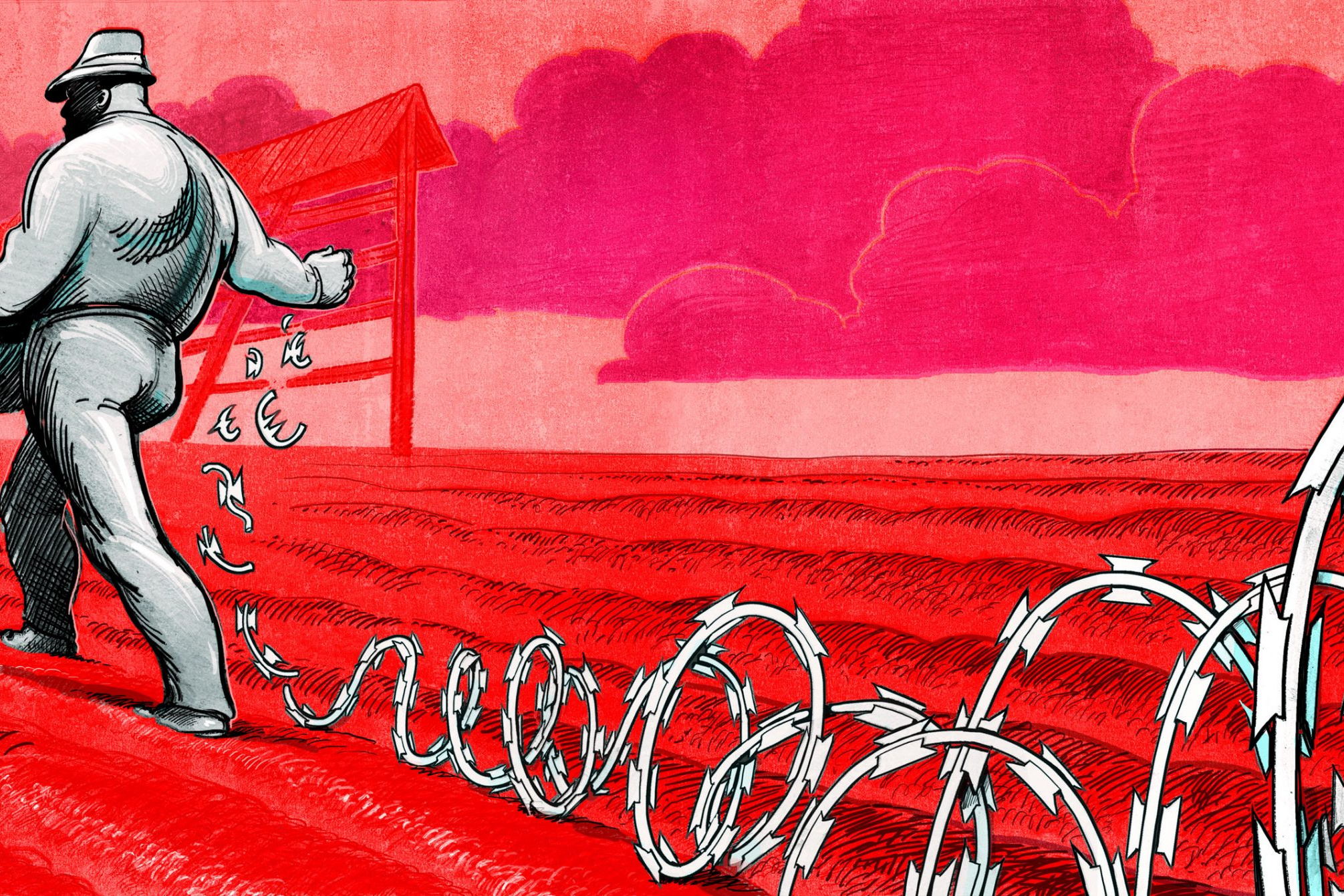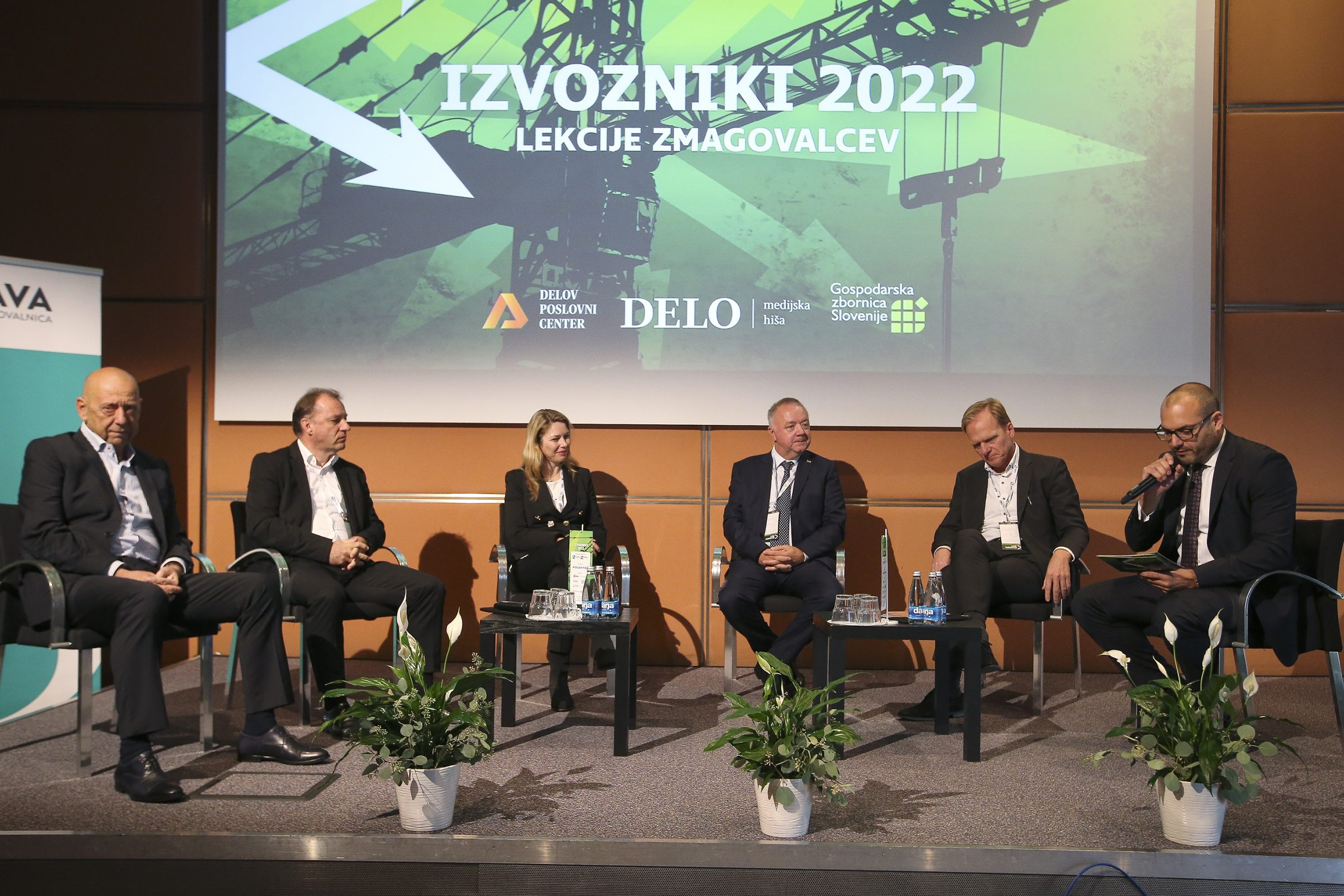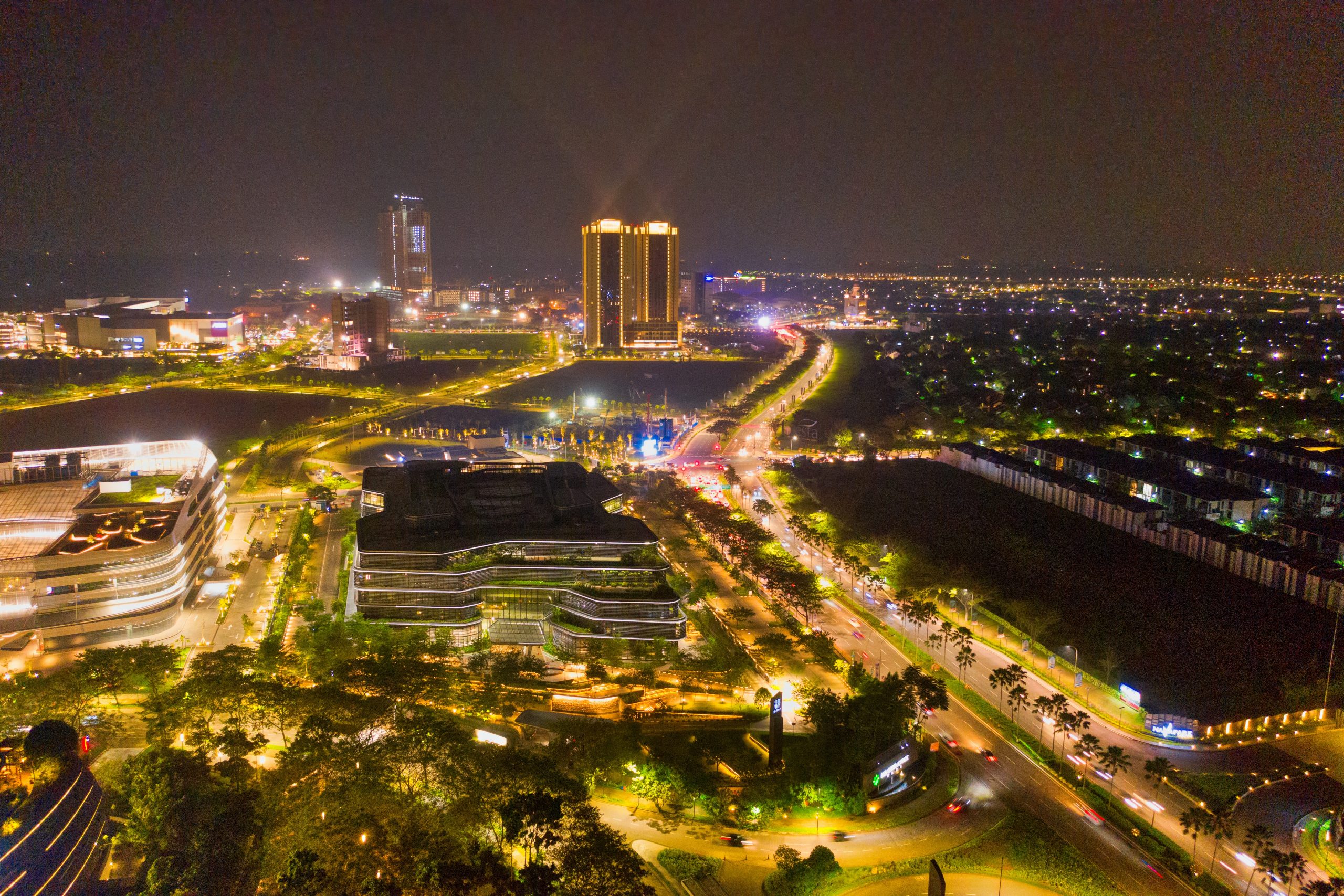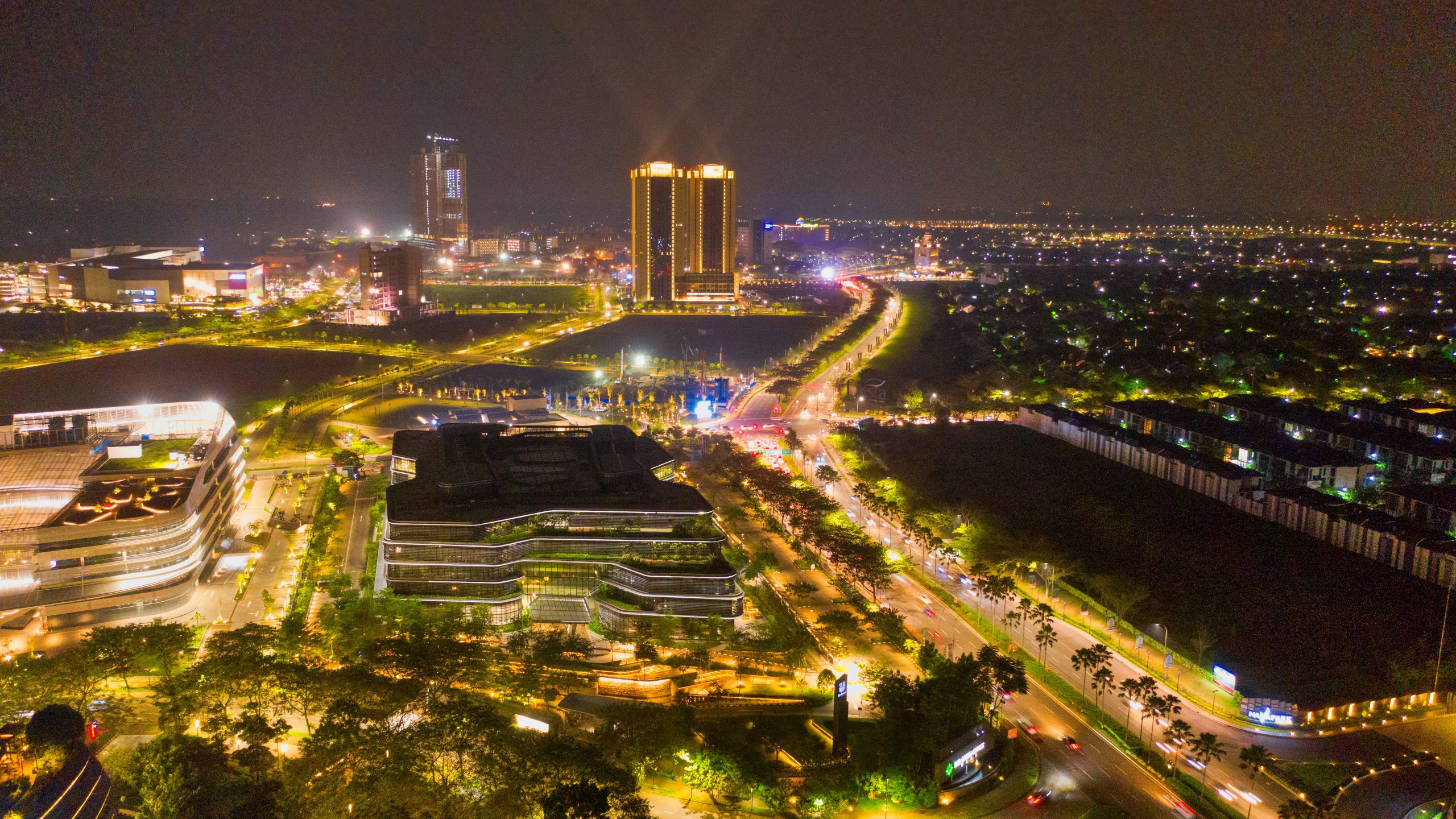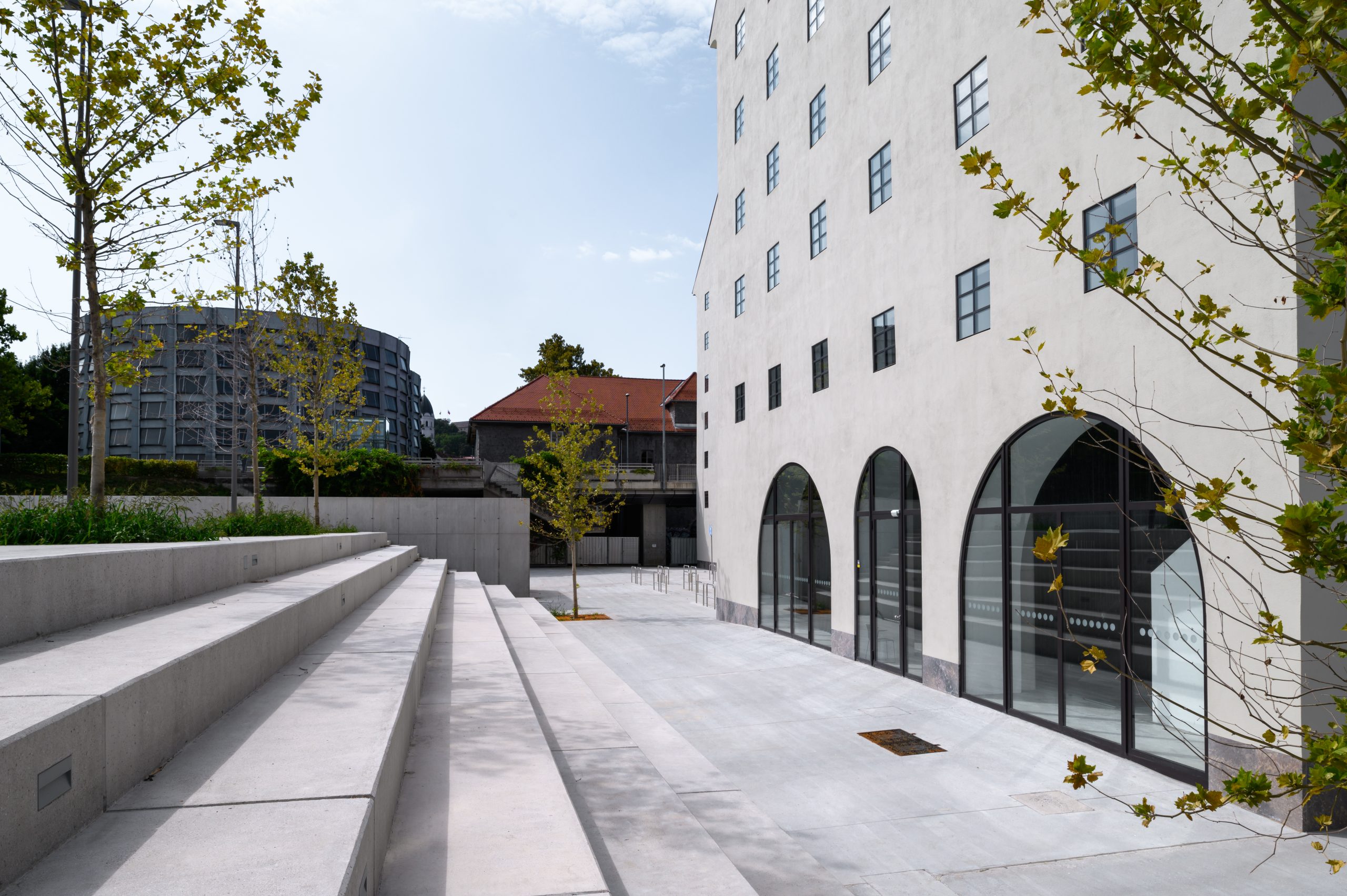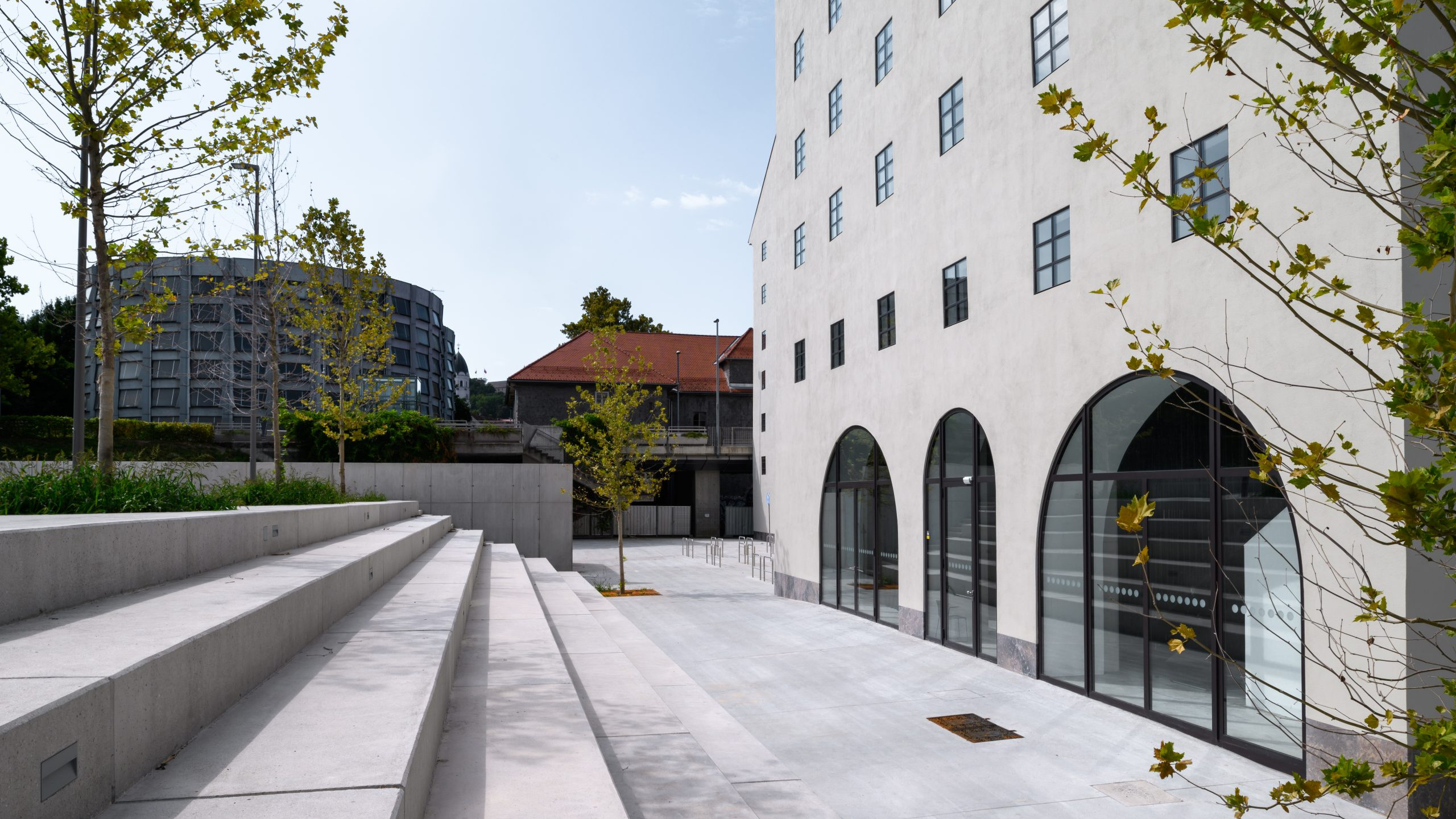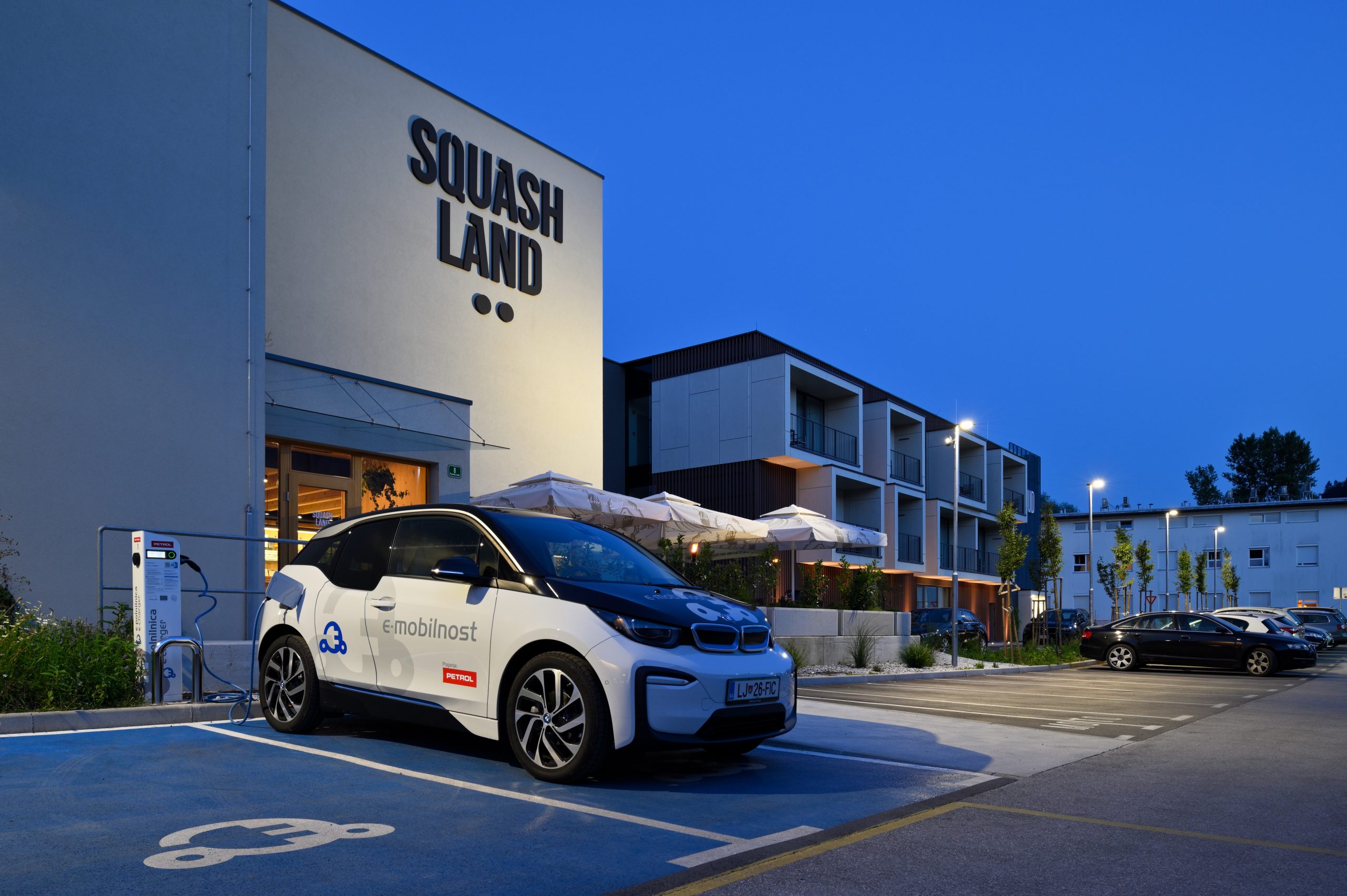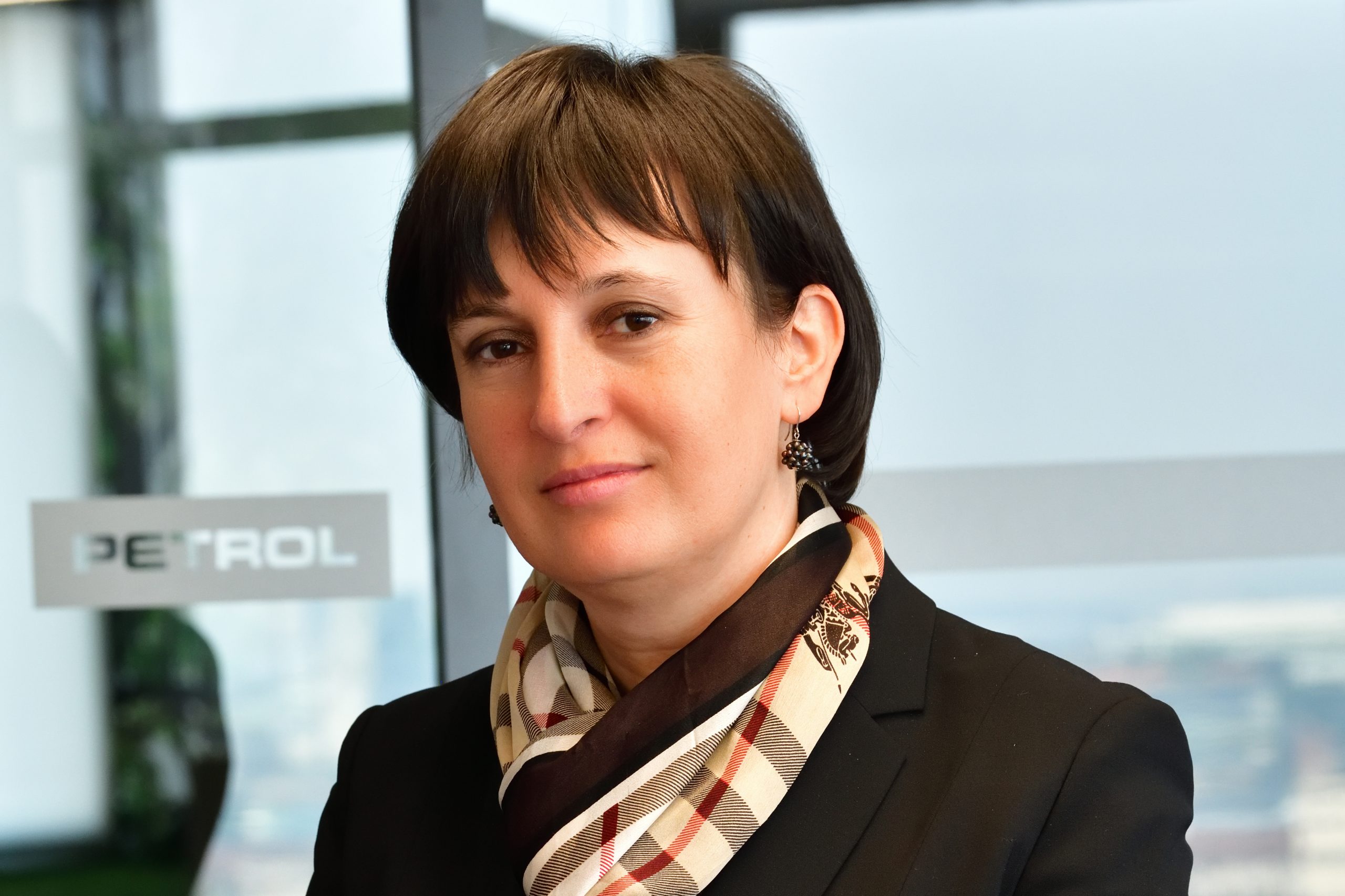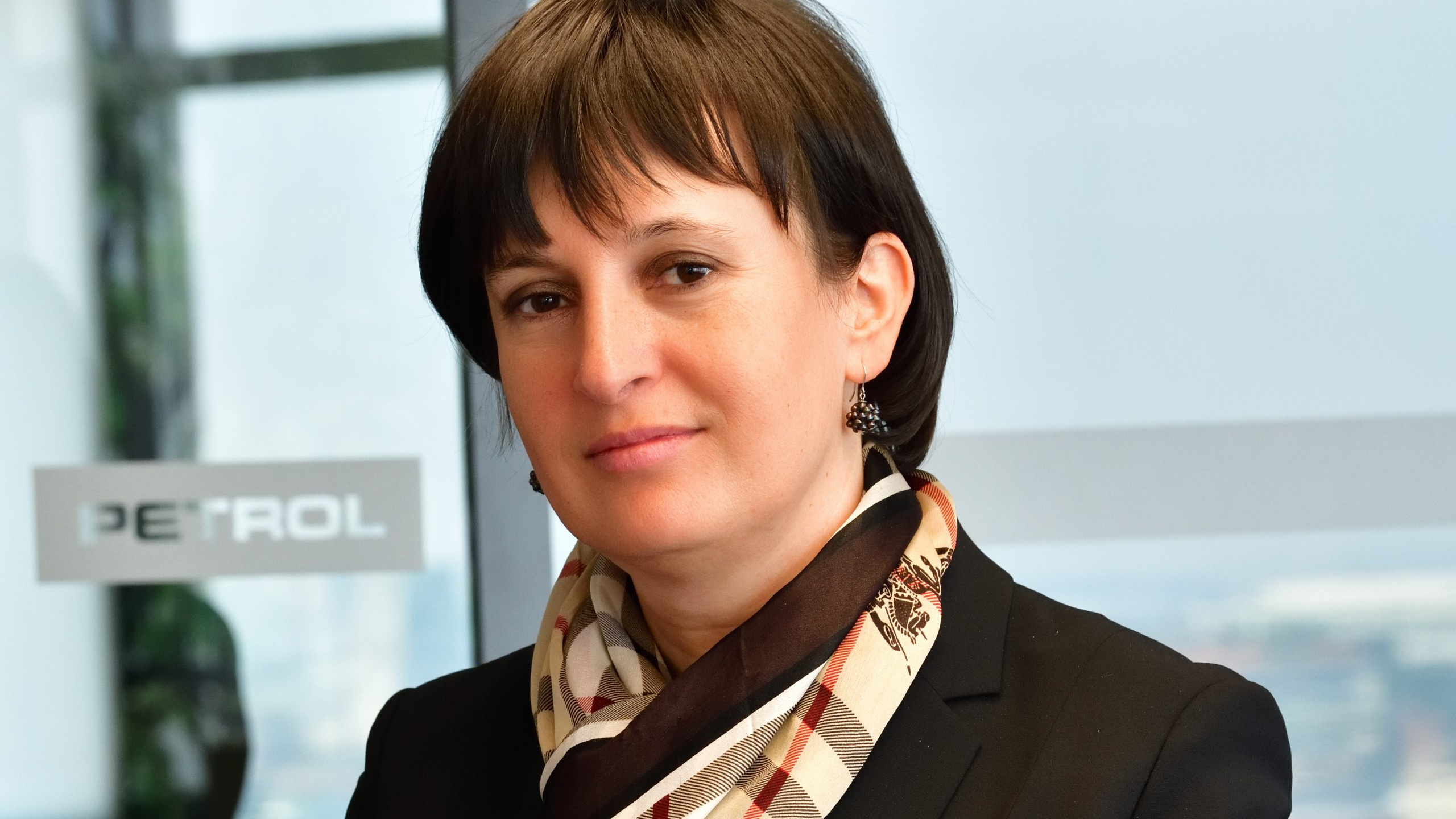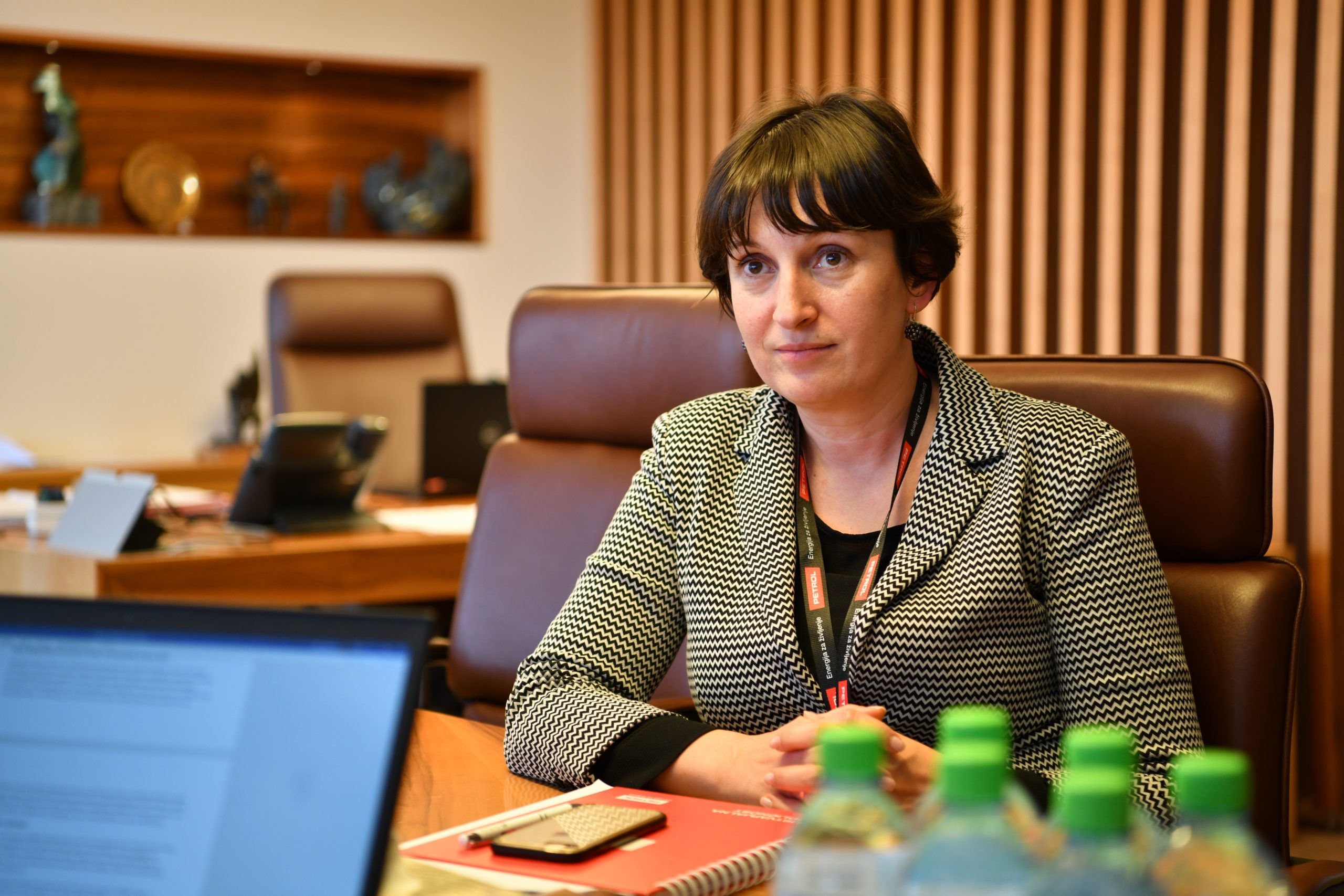Balkans Silicon Valley: Dream or Reality?
Startups in the Region
editor
Steve Tsentserensky
CONTRIBUTOR
What comes to mind when you think of the Western Balkans? Innovation? World-beating tech? Next-gen cars? Or is it fractured political systems, stagnation and brain drain.
Chances are it’s a mixed bag depending on which country you consider. From the standard macroeconomic perspective, they’re all at dramatically different stages in their development – for example, with Slovenia being ahead of Bosnia and Herzegovina by leaps and bounds. But curiously, there is a burgeoning start-up scene in each of the countries in the region. There’s a genuine desire to improve and make things better at home, rather than build out those ideas elsewhere.
Where in the past, a lack of opportunities contributed to sizeable brain drain from the region, nurturing that entrepreneurial spirit among those who stayed, and the up-and-comming young guns can represent an economic turning point in all countries in the area.
The Landscape
For starters, growth is strong. According to the World Bank, the pre-pandemic growth rate in GDP was 3.6% in the Western Balkans and 4% in CEE countries (in 2019). Compared with the meagrely 1.8% for the EU27, you see a region on the rise. Moreover, to quote the economists stationed in Washington, DC: “In 2021, the Western Balkans region is seeing a faster-than-expected recovery from the COVID-19-induced recession.”
The CEE region (which includes Slovenia, Croatia and several others in the Western Balkans) has seen meteoric rise in the enterprise value of its resident corporations. With a valuation boosted from virtually non-existent in 2010 to €186 billion in 2021, the Croatia-founded Infobip is the latest unicorn to arise from the Balkans specifically.
While the region remains a hotspot for outsourcing business processes due to its abundance of IT professionals, VC funding for start-ups as well as funding in general remain challenges throughout the Western Balkans.
To tackle the problem, the European Commission launched the Digital Agenda for the Western Balkans already back in 2018. Focusing on Albania, Bosnia and Herzegovina, Kosovo, Montenegro, North Macedonia, and Serbia, Brussels plans to:
- Invest in broadband connectivity;
- Increase cybersecurity, trust and digitalization of industry;
- Strengthen the digital economy and society;
- Boost research and innovation
Furthermore, EU4Tech PoC was launched in 2020 to “offer support to 40+ promising technology-based projects from the Western Balkans at the ‘Proof of Concept Stage’.”
Country Overview
Given the varying progress, there is, of course, something of a divide in how robust the start-up and tech scenes are from country to country. Still a long way from a cohesive Silicon Valley-type ecosystem, a rift between the proverbial haves and the have-nots has appeared, with a clear line between the leaders and the upand-comers.
Leaders of the Pack
Slovenia, Croatia and Serbia are far and away the standard bearers in the region, and are paving the way for growth throughout the Western Balkans.
Slovenia
2019 GDP: €48.28 billion
Population: 2.10 millionUnicorns: Outfit7
Squarely in the EU, and arguably the most developed of the post-Yugoslav countries, Slovenia’s startup space is robust, perhaps unsurprising given its close ties to Europe. ABC Accelerator is the most well-known incubator, accelerating over 250 start-ups from 30 countries, and named the best regional accelerator in 2017 and 2018.
Slovenia is no newcomer to innovation either. Podim – one of the most influential startup and tech events in the CEE – was started way back in 1980. Veritably, it’s one of the best start-up events in the whole of Europe.
Video game developer Outfit7 is Slovenia’s most notable global success story but not the end to it. Viberate is striving to create the world’s best live music platform. Recently, the fintech Elly (formerly Eligma, with a valuation of €50 million), has raised another €4 million to build out their crypto payment network.
Croatia
2019 GDP: €54.15 billion Population: 4.04 million Unicorns: Infobip
With thousands of kilometres of coastline, tourism is what Croatia is known for these days, with the industry contributing 20% to its GDP. Seaside aside, though, Croatia has become quite the hub for innovation in recent years.
Infobip, a recent entrant into the unicorn club, has become a global powerhouse as a communication platform for business, and expanded into the US with the purchase of Peerless Network. Oradian is a fintech bringing cloud-based banking to emerging markets. Osijek-based Orqa FPV is bringing greater control to first-person view (FPV) drones with their remote controller, video goggles and other products.
You can’t talk about Croatian innovation without mentioning the electric hypercar maker Rimac, who acquired Bugatti and is building a campus just outside of Zagreb in Sveta Nedelja.
Serbia
2019 GDP: €45.89 billion Population: 6.90 million
The most populous in the region, Serbia churns out highly talented engineers and developers every year, making it a top outsourcing location. Startup Genome places the country among the global top 15 for affordable talent, noting that Serbia creates most foreign-direct-investment jobs per million inhabitants. Adding that “the dynamism and knowledge brought into Belgrade by this influx of foreign investment has now begun to percolate through the local start-up ecosystem.”
Agremo has taken advantage of the knowledge at their fingertips, and developed a system that combines aerial imagery and advanced analytics to help farmers maximize profits and performance in agriculture. Start-ups like them are navigating the market with the help of initiatives like the Startup Centar and accelerators like Katapult that offer guidance and funding opportunities.
Up-and-comers
The reason why Slovenia, Croatia and Serbia are the vanguards of the growing start-up scene can be summed up in one word: stability. While not perfect, each country enjoys a basic level of stability that makes investment and new businesses inherently less risky. BiH and Kosovo are still working on that front.
Despite these setbacks, things truly are happening.
Bosnia and Herzegovina
2019 GDP: €18.00 billion Population: 3.28 million
With promising hubs emerging in Mostar and Sarajevo, there’s plenty potential but not nearly as much clarity. The impeccable location, and the ease of collaboration with cross-border counterparties, imply BiH should have no difficulties moving to the right direction – but only time will tell.
In the meantime, there’s ZenDev, a software development firm founded by the Bosnia-and-Herzegovina-born Senad Santic and a partner, which is based in both Gothenburg, Sweden, and Mostar, BiH. Also, Sarajevo is the home of Ministry of Programming, named one of the ‘Technology Fast 50 in Central Europe’ by Deloitte in 2019. Add to that an incubator such as Intera Technology Park, and the building blocks for growth are surely there.
Kosovo
2019 GDP: €7.08 billion Population: 1.87 million
Kosovo has the longest way ahead but fortunately, success stories are popping up from every direction. The best example of what’s possible despite geopolitical difficulties is the Innovation Centre Kosovo. They’re at the forefront of developing an environment of genuine innovation in Kosovo, having worked with 390 startups to develop north of 450 products. Successes include Frakton, a software-development company of Pristina, and Gjirafa, an Albanian-language search engine that has already received $6.7 million in funding
Challenges
It’s not all roses and sunshine, though. Western-Balkans countries are facing some difficult challenges on the way to transforming the region into a more robust tech hub. Brain Drain: It’s no secret that these states have a hard time keeping their best and the brightest, some more so than others. Stemming the flood of emigration is critical in building a Silicon Valley-like place.
Wages: The main reason why talented engineers, developers and their kin are the ones leaving. They can make multiples of their local salaries in other countries, and their services are highly sought-after these days. Funding: While there are funding mechanisms and options available, it’s not enough yet. Without access to finance, wages can’t rise enough for dissuading people from leaving. Joanna Nagadowska of Google for Startups points to a brighter future, though: “Successful CEE tech startups are attracting the attention of international investors and activating the positive flywheel, providing a base for the next generation of successes.”
So, Dream or Reality?
Why not both? After all, Rome was not built in a day, and neither was Silicon Valley, for that matter. A dream becomes reality only when people begin transforming their imagination into tangible gains, real wins. The Western Balkans have proven time and time again, country to country, that they are rich in talent and ambition. Moreover, companies like Infobip and Rimac have chosen not to relocate to “greener pastures”, finding the pastures are well-watered in Croatia. Stories like this only make the region more attractive for investment, and inspire the next generation of entrepreneurs to stay and build here.
THE ADRIATIC
This article was originally published in The Adriatic: Strategic Foresight 2022
If you want a copy, please contact us at info@adriaticjournal.com.
How Will You Personally Contribute to a #Greenerfuture?
COP26
editor
Barbara Uranjek
CEO, BRITISH-SLOVENIAN CHAMBER OF COMMERCE
We, at the British-Slovenian Chamber of Commerce, asked managers of some large companies how they personally contributed to a greener planet. Their answers included using glass instead of plastic, driving electric cars, powering their offices with renewable energy, not littering, and avoiding air travel when possible. Managers lead by example, but we all need to start shifting our mindsets, and to think about our carbon footprint every day.
Limiting the increase of temperature should be persuaded by every individual, but it needs to be led by governments. That’s why climate negotiators sat together day and night for two weeks of intense talks in Glasgow at the COP26 Climate Change Summit, with consensus on urgently accelerating climate action. COP26 brought together tens of thousands of delegates from 196 countries, along with youth and indigenous leaders, civil society groups and businesses – the biggest international Summit the UK has ever hosted!
The outcome of the summit, the Glasgow Pact, will speed up the pace of climate action this decade, with all countries agreeing to submit improved emissions targets in 2022 as well as to doubling, by 2025, the financing available for climate change adaptation. For a historic first time, the COP decision included a position on scaling down the use of fossil fuels and coal, and on supporting climate vulnerable countries.
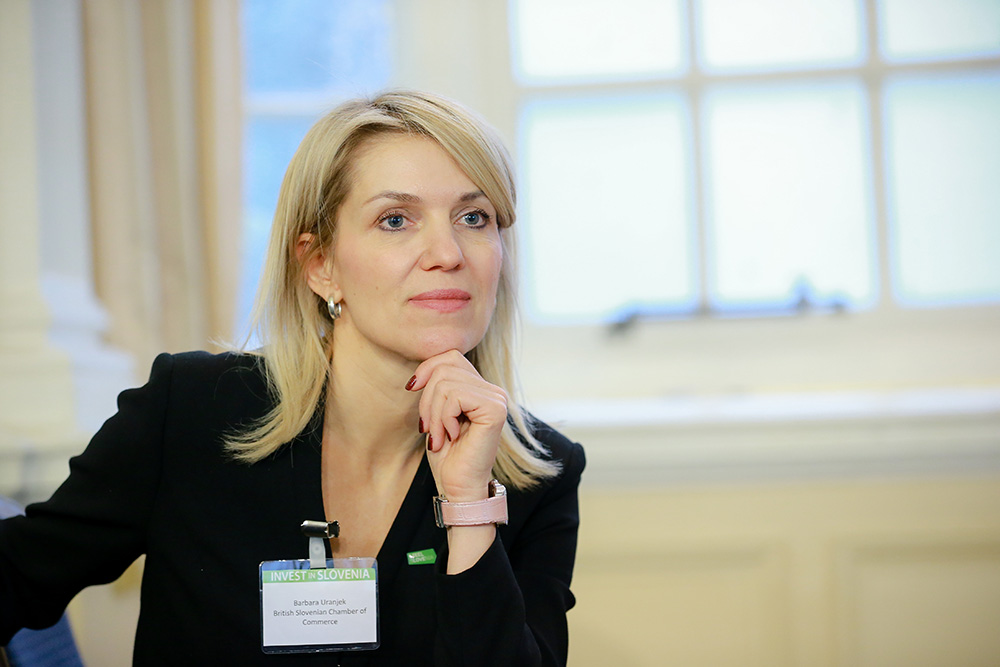
THE ADRIATIC
This article was originally published in The Adriatic: Strategic Foresight 2022
If you want a copy, please contact us at info@adriaticjournal.com.
Music and Politics: Slo, Yu, 1980s
editor
Martin Pogačar, PhD
CONTRIBUTOR
You know that feeling when a song floats on the radio, or through your headset, and you see and feel an event, or remember a scene, a scent from long ago? Music does that sometimes.
To paraphrase a famous politician, the later part of 20th century produced more music than we can possibly consume. Now-ancient tracks we have surreptitiously discovered on YouTube, or on old vinyl record, evoke in our minds the Zeitgeist of an era: that defining 1960s flower power, the glam of the 1970s, the grit of the 1980s, the now-nostalgic 1990s pop and Brit rock … The cacophony of sounds of the 2000s and 2010s, however, still await to be ascribed that musical something that we find period-defining and remember old times by. Of course, this point in time is still somewhere in the future, and not for us to know now just yet.
But we can always look back. The question I’d like to entertain here is: what is it that music reveals about its time of origin and what should we make of it? The 1980s seem just the right period to reflect on: far enough in the past to be felt remote, but for this very reason, relentlessly seeping into our present. A look at the music of the 1980s yields further interesting details through the perspective of the former Yugoslavia, a country that existed between 1945 and 1991.
For the readers young enough not to remember the times, or for those who know little about the period: the Yugoslav 1980s were a time of political and economic crises, of excessive shopping in Italy and Austria, when people were hoarding overpriced coffee and their cars were, well, lacking in fuel. Still, Yugoslavia was not tucked away behind the iron curtain in some type of boring self-isolation. Instead, the 1980s in these parts of the world were a period of musical experimentation, pushing the boundaries and crossing borders. It was also a period of political democratisation and, paradoxically, also of finding new limits. Politically, the decade represents a break in the histories of the post-Yugoslav region, the beginning of the end of one country and the prenatal phase of a bunch of new ones. Culturally, however, the 1980s have survived in numerous second-hand records and YouTube videos, and they keep defining the Slovenian political discourse. The 1980s are ingrained into the very fabric of post-1991 post-Yugoslav presents.
As it is true for any historical time, the 1980s also have their history, or historiography. In Yugoslavia, the decade inherited the legacies of the late 1960s – of student protests, of economic prosperity and the gradual liberalisation of the country, when the borders became increasingly permeable for both goods and people. In a time of Yugoslav Gastarbeiters migrating to Germany, the proverbial “red passport” was gaining currency. In musical terms, the 1960s followed global trends with beat music, folk, rock, and pop; the Mamas and Papas were successfully localised as Pepel in kri. The idiosyncratic genre of popevka (close to canzona or Schlager) flourished at music festivals, defining sound and age with the voices of Marjana Deržaj, Majda Sepe, Lola Novaković, and the poetics of Arsen Dedić. In line with cultural politics of Yugoslavia, rock was “let live” throughout the 1970s in order to blunt its potential subversiveness, by making it mainstream. Đorđe Balašević, Bijelo dugme, and a number of bands would take-and-adapt the musical form of revolt, and reflect it back to the famous days of Yugoslav heroic past. Some bands relished in such clear double perversion, say Buldožer, the alleged forefathers of punk. But after 1980, the year the Yugoslav President Tito died, we now know the country was heading for political crisis, exacerbated by the changes across the socialist world, and global economic strife.

This was three years after the first punk-rock gig – at a school dance in Ljubljana, by a band called Pankrti – spawned a loud and unmerciful sonic expression of second-generation post-war Yugoslav youth. Members of Paraf, Lublanski psi, Niet, Termiti and others from across Yugoslavia, followed the trail of the irreverent Buldožer. Having had no personal experience with the Second World War, they found it difficult to fully identify with relentless presence of the legacies of war and their ideological grip. Much like their older peers from the 1960s, they glanced across borders and listened to “Western” popular music, watched films and read the literature, studied abroad, and bought records in London. They were faced with first-hand consequences of an idling regime failing to reinvent itself, and were fed up with it. And they showed it.
Listening to punk rock, it’s easy to imagine youth disappointment, the empty streets in the evenings, the dread of having nothing to do and nowhere to go, the fog and the cigarette smoke.
Po cestah hodijo ljudje [People walk down the streets].
Na vogalih bajt so zvočniki [Speakers hang off houses’ corners].
Koračnice se odbijajo od sten in jim sekajo glave [Military marches bounce off walls and cut off people’s heads]
Praznik. [Celebration.] (Otroci socializma, “Pesem za Mandič Dušana”)
The rough sounds of proverbial three-chord riffs, rudimentary basslines, and out-of-tune shouting give a background to the expression of disappointment, having detected an impasse:
Kje si zdaj, proleter, [Where are you now, proletarian]
kje je zdaj tvoja puška, [where’s your gun]
kje so zdaj tvoje roke, proleter. [where are your hands, proletarian]
Mi zdaj dvigamo zastave, [We’re raising the flags now]
v čast tvoje borbe, [to honour your fight]
vodi nas zdaj ti, proleter. [guide us now, proletarian]
Proleter, proleter, [Proletarian, proletarian]
zdaj v kamen vklesan si, proleter. [You’re carved in stone, now.] (Via ofenziva, “Proleter”)

In its early years, punk was a roar of a generation that wanted more, and wanted out of what it felt was a stifling grip of older generations even if it did not necessarily know how to do it and even if it did not necessarily seek a way out of socialism. It was the other side, of recalcitrant politics that cracked down on the youth for wearing crossed-out swastika badges, feverishly misinterpreted as endorsing Nazism. It was the critical element of the rising alternative movement, inherently fragmented and multidirectional, that housed a wide and varied assortment of civil society initiatives (gender rights activists, environmentalists, pacifists), artistic groups (NSK, Laibach), and engaged thinkers. The latter were quick to spot the political and cultural potency of the genre and of the social shift underway, and managed to make it a topic of wider discussion, followed by a series of talks and publications. It exposed a crack in the order of things.

Somewhat later, this crack turned into what was then called “new wave”, which diverted music from the raw sounds of punk into a more elaborate combination rock and sometimes electro-industrial elements. Bands such as Ekatarina Velika, Videosex, Azra, Haustor, Disciplina Kičme, Denis & Denis, and others adopted a more sophisticated approach to music, elaborating on song composition and bringing in keyboards and electronic instruments.
At about the same time, however, popular music was rapidly evolving in other genres as well. Music production expanded, building on one of the strongest South-East European music industries, with festivals, bands, and labels such as ZKP RTV Ljubljana, Jugoton or PGP RTV Beograd producing domestic and issuing “Western” titles. The wide variety of bands and genres catered to increasingly profiled listeners, spanning narodnozabavna (newly-composed folk), rock, popevka, folk, disco, electro and industrial music, pop, punk, and new wave. The 1980s thus professed a differentiated music scene, including increasingly popular discs and clubs, both alternative and mainstream. Increasingly, all kinds of music made their way onto television and, through increasingly available and affordable record and cassette players, also into youth bedrooms and back to the streets. But as much as this was the time of awakening civil society and of the alternative, of punk and engaged art, it was also a time of rampant countryside pop.
And, with it, a time rising nationalism that found its foothold in wide segments of 1980s Slovenian society also through pop music. While alternative music and art arguably opened up the field for artistic and social experimentation, and actively thought politics, it was pop that managed to bank in on making fun out of the regime. The foremost group that built its popularity on fusing rock and rural countryside imagery, provocative and obscene lyrics, and playing with socialist iconography, was Agropop. The band’s frontman noted in 2012 documentary Nekoč je bila dežela pridnih (dir. Urša Menart): “We were a bit of an underground team, and we said, Slovenia is actually made of 90% rural population […] why the fuck should we sell some urban stuff if just a generation ago Slovenes were peasants?”. This sums up their credo, and also reveals the social tendency of moving away from the emancipatory alternative ideas of democratisation towards nationalism that started to prevail in politics, garnering support for the dawning independence project. A newspaper reported in 1988: “Their songs, as they say themselves, are a bit for fun, and a bit serious. Precisely due to their wide repertoire and merry atmosphere that they create with their songs, Agropop made it to the very top of the Slovenian music scene”.

The ambiguity enabled a profusion of ‘innocent’ nationalism that seems to have reached a milestone in 1987, when the band recorded an instant hit: “Samo milijon nas je” [There’s just a million of us]. The song repurposed the title of a Partisan poet Karel Destovnik Kajuh’s 1944 poem, “Samo milijon nas je” – written during Nazi occupation, it carried a charge of resistance and perseverance in face of imminent cultural and physical eradication by the occupying forces. Forty years later, Agropop put the first stanza to music and lyrically refurbished the song to a radically different historical context – and defined a different national enemy. But unlike Kajuh’s head-up-high poem that refutes the discourse of smallness, Agropop brought in a feel of self-victimisation:
Majhen narod vedno kriv je [A small nation is always guilty,]
Kdor je majhen, je vedno kriv [the small are always guilty,]
Če si majhen, bodi srečen, da si živ [If you’re small, be happy to be alive.] (Agropop, “Samo milijon nas je”)
And, with it, a time rising nationalism that found its foothold in wide segments of 1980s Slovenian society also through pop music. While alternative music and art arguably opened up the field for artistic and social experimentation, and actively thought politics, it was pop that managed to bank in on making fun out of the regime. The foremost group that built its popularity on fusing rock and rural countryside imagery, provocative and obscene lyrics, and playing with socialist iconography, was Agropop. The band’s frontman noted in 2012 documentary Nekoč je bila dežela pridnih (dir. Urša Menart): “We were a bit of an underground team, and we said, Slovenia is actually made of 90% rural population […] why the fuck should we sell some urban stuff if just a generation ago Slovenes were peasants?”. This sums up their credo, and also reveals the social tendency of moving away from the emancipatory alternative ideas of democratisation towards nationalism that started to prevail in politics, garnering support for the dawning independence project. A newspaper reported in 1988: “Their songs, as they say themselves, are a bit for fun, and a bit serious. Precisely due to their wide repertoire and merry atmosphere that they create with their songs, Agropop made it to the very top of the Slovenian music scene”.
These words implicitly evoke the feelings of subordination (internal imposition) and of political ineptitude, presaging the discourse that prevailed during post-socialist transformation and fuelled awkward ethno-exclusivism and cultural autarchy. This was quite different from the positive, band-aidish sound of “Svobodno sonce”, a song that musically accompanied “the nation” through the 10-day war of independence. The refrain paints, well, a utopia:
Sanjam deželo, ki pravični mir pozna, [I’m dreaming of a land that knows a just peace]
dolga je cesta, po kateri prideš tja. [It’s a long road to get there]
Ta pot je brez konca, a vodi naprej, [It’s an endless road, but it leads onward]
premnoga življenja ugašajo ob njej. [too many lives perish along the way.]
[ref] Svobodno sonce naj sije spet [Let the free sun shine again]
na to deželo in na ves svet. [to this land and all the world]
Svobodna pesem za vse ljudi [Let the freedom song for everyone]
topov grmenje naj preglasi. [Drown the cannon thunder.]
A popular memory and nationalist interpretation of events goes, it was to this song that the 1980s and Yugoslavia historically ended. Yet, it is also where the post-Yugoslav appropriation of the period began and can be witnessed even 30 years later, preventing history to be put to rest by daily political fights. But this is another story that, much like the present, will have to be told sometime in the future.
THE ADRIATIC
This article was originally published in The Adriatic: Strategic Foresight 2022
If you want a copy, please contact us at info@adriaticjournal.com.
Key Industries Commitment to ESG Guidelines
Sustainable Future
editor
Carol Jardine
CONTRIBUTOR
If there is a will there is a way...
Trying to redress the contributory issues to Climate Change is analogous to trying to put out a forest fire; extinguish one and another starts. However, it looks like the business world has woken up to the harsh reality of Climate Change, and at COP26, in 2021, serious commitments were made by over 200 countries, to take proactive action to save the planet. However, the implementation processes of these commitments are convoluted, complexity varying considerably according to industry, country and wealth, however despite the many difficulties envisaged, a common goal was agreed on – to maintain a global temperature rise of 1.5C or less, and achieve Net-zero emissions by 2050.
ESG Incorporated
The conference also covered many ESG issues such as resource conservation, water management, biodiversity and human rights, to name but a few of many interlinked issues. However, the most significant factors influencing Climate Change are Carbon emissions and fossil fuels, and undertakings were made to transition to Net –Zero by 2050. This requires buy-in from Energy stakeholders, investors and consumers alike, and will be arduous and costly for all.
In alignment with The Paris Rulebook, global companies must now produce and maintain transparent ESG strategies and and publicly accessible results, updated and monitored.
The Energy Sector
Energy producers are amongst the chief culprits of CO2 emissions and have acknowledged their culpability by undertaking to reduce carbon emissions and ultimately transition to renewable energy, whilst balancing efficiency, profitability and low emission rates. Indeed, they committed to reducing global carbon emissions by 2030 with a target of Net-Zero by 2050.
However, merely selling off high emission subsidiaries or investing in biofuel companies does not reduce emissions in the short term. In some cases, it can be merely passing the emissions further down the line, and the new technology designed to create biofuels may increase emissions in the medium term.
Sadly, the encouraging reduction in carbon emissions in 2020, as reported at COP26, was largely due to COVID pandemic restrictions. To remain on track, this decreased level must be maintained, and in a ‘normal’ world this will prove difficult – and costly.
The Financial Sector
The Financial sector has also pledged allegiance to Climate Change by increasing its ESG support to underdeveloped countries to $100 bn annually, as well as mandating the incorporation of ESG criteria into financial evaluations and ESG related investment funds. ESG investment has evolved from niche to mainstream to mandatory, effectively reshaping the financial industry. The AUM invested in ESG related funds has increased tenfold from 2018 to 2020, and 25 – fold from 1995 to 2020, with predictions of exponential growth over the next two years.
Sustainability-linked loans and bonds also soared to $4 trillion, with issuance exceeding $1.6 trillion in 2021 alone. Bloomberg predicts that ESG AUM is on track to represent more than a third of AUM by 2025.
Commercial banks are introducing lower lending rates for environmental and societal initiatives, and the insurance sector is implementing ESG related investment strategies, whilst also having to cope with an increase in climate-induced natural disasters.
On a societal level, many companies and financial institutions in Europe are pursuing a ‘Women on Board’ policy, to ensure that at least 40% of non-executive director posts are filled by women.
Digitalisation has now become the norm with electronic PDFs replacing paper.
Europe is the global sector leader in ESG investing, but since 2020, the US has seen 40% growth and is continuing to grow rapidly. During the Covid pandemic, the ESG funds fared better than traditional funds, demonstrating their stability in times of crisis, and encouraging a new wave of investors.
Pharmaceuticals
Big Pharma, has been awarded a ‘most improved industry’ ESG rating in response to the COVID pandemic and its addressing of ESG issues, such as diversity and inclusion, provision of health education and distribution of nonprofit medicines to underdeveloped countries. Conversion to 100% renewable electricity and carbon-neutral car fleets by 2030 are also on their agenda.
They have also promoted good relations within their workforces and are pledging to promote gender equality and diversity at all levels, although the current payout to the CEO of Moderna of $926 million flies in the face of their ‘affordability’ issues.
The pharma sector has also pledged millions to address ‘waste’ issues such as sustainable packaging and energy usage and is using its well-publicised response to ESG to reestablish public trust after a spate of high profile litigation suits.
The Future
Increased awareness of the implications of Climate Change is growing, led by fiercely passionate Millenials and Generation Z. Ecology is now embedded in the syllabi of schools across the world, and the visible effects of climate change are visible to all.
Strict adherence to ESG criteria makes the 1.5 °C cap and Net-Zero emissions attainable, but, we must all be proactive in ensuring that commitments are kept and ESG criteria are met, and if we do , we may just get there!
WALK THE TALK: THE FIRST REGIONAL NET-0 EVENTHow can organisations contribute proactively to carbon neutrality?
In September 2022, the Institute for Strategic Solutions (ISR) is planning a NET-0 EVENT business forum. It will focus on the most crucial issue of our times – climate change. We will discuss ways in which both companies and individuals can mitigate the effects of climate change and reduce greenhouse gas emissions. The purpose of the event is to bring together key representatives from companies, politics, NGOs, and international agencies, together with innovators of breakthrough solutions and the financial community in a combined effort to try and find solutions to this serious and impending crisis.
Only by working together, can we succeed.
All relevant stakeholders agree that carbon neutrality and net-zero emissions are our key goals for the future. However, sectoral strategies vary, and seldom address the whole problem by failure to adequately align supply chains to their stategy, and by omitting to include the problems of transition – both of which are significant challenges. Therefore, we will aim to highlight these issues, through a series of articles from different platforms, prior to the business forum. Our obective is to equip readers with access to new ideas, good practice and integrated processes that are environmentally responsible and proactive in their quest for a positive future with net-zero emissions by 2050.
ESG: What Does It Mean and Why Should We Care?
Sustainable Future
editor
Carol Jardine
CONTRIBUTOR
‘’Earth provides enough to satisfy every man's need, but not every man's greed.”- Mahatma Ghandi
ESG stands for Environmental, Societal and Governance. ESG is a blanket term for a converging number of standards and practices that align with sustainability. Businesses that incorporate the relevant principles of ESG into their corporate strategy ensure that their working practices align with a unified set of environmental, societal and governance statutes and working practices that will help to both reassure stakeholders and investors alike. ESG provides a clear signal that organisations are taking constructive steps to heal our planet and build a sustainable business that will ultimately benefit everyone.
ESG originally evolved from the SRI Directive ( Socially Responsible Investment) which dealt with moral and ethical issues, and a conference report entitled ’Who Cares Wins’ in 2005. They were pulled together as a UN initiative by Kofi Annan in 2006 to provide a more holistic approach in making companies more accountable and transparent, while also helping to save the planet through environmental awareness in a rapidly changing world.
In 2006, 63 companies signed up to ESG, amounting to 6.5 trillion dollars AUM ( Assets under Management), in 2021 there are over 3000? companies with over 80 trillion AUM with further growth expected in 2022. ESG investments have progressed rapidly from peripheral to mainstream, and its criteria is now used as a leading investment ( and marketing )tool by financial instutions and analysts globally.
In 2022, ESG issues are becoming dominant factors in corporate strategy. Environmentally, there are the tangible impacts of climate change such as the increasing scarcity of natural resources such as water, earth and timber, often caused by extreme weather and rising water levels. These environmental hazards affect infrastructure ,land loss , and thus subsequent loss of income to entire communities.
Equally important are the man-made environmental factors, such as polluting emissions from factories and irresponsible waste disposal which have caused irrevocable damage to the biospheres of sea, land and air-and our bodies.
Societal criteria tend to focus on relationships within the labour force, and incorporates the now familiar, Health and Safety standards. Other societal issues revolve around responsible recruitment and the implementation of gender and cultural diversity at Board level. There has been evidence of vastly incresed committment to training and conselling resources for Human Capital in both skilled and unskilled labour, as well as salary equality and equal opportunity.
Diversity at Board level, not only opens windows to new markets and innovative products, but enables corporates to predict and capitalise on new opportunities, while it also increases awareness of pending environmental and societal threats in key geographical regions.
And last but not least, Governance. This focuses mainly on the company’s leadership and management policies, and has a tangible and positive impact on staff, communities and ultimately, investors.Regulators are actively implementing new sector –specific directives dealing with organisations’ culture, behavior and values in terms of corporate structure, financial structure as well as anti-bribery and corruption policies in line with demands from investors and customers for more transparency and evidence of good ethical practice. This has become increasingly apparent during the COVID crisis with regards to the pharmaceutical industry.
It is clear that ESG is becoming an integral part of investment decision making and in the 2020s consumers are becoming more and more aware of climate change and substaniability, and the need to see ESG in action.
Generation Z, those born after 1996, and the Milennials , those reaching adulthood at the beginning of the 21st century, are increasingly aware of substainability through their schooling and highlighted through social media and the endorsement by high profile activists , while ‘green issues’ are an integral part of the educational syllabus for Generation Z. Both generations have been brought up with IT and the terrifying ramifications of Climate Change. They are able to to see through the ‘greenwashing’ marketing ploys on corporate websites, and have the know-how to persue their own research to substantiate claims and allegiances.
Mercifully, the population at large, are beginning to recognise the benefits of ESG, and stakeholders of the large corporates and investors are demanding ESG as a key part of corporate strategy. ESG is not yet perfect, but is evolving in the right direction. It varies from sector to sector and is a constantly overlapping and evolving concept, that needs to be adhered to and recognised if we want to avoid the catastrophic effects of climate change and corruption.
WALK THE TALK: THE FIRST REGIONAL NET-0 EVENTHow can organisations contribute proactively to carbon neutrality?
In September 2022, the Institute for Strategic Solutions (ISR) is planning a NET-0 EVENT business forum. It will focus on the most crucial issue of our times – climate change. We will discuss ways in which both companies and individuals can mitigate the effects of climate change and reduce greenhouse gas emissions. The purpose of the event is to bring together key representatives from companies, politics, NGOs, and international agencies, together with innovators of breakthrough solutions and the financial community in a combined effort to try and find solutions to this serious and impending crisis.
Only by working together, can we succeed.
All relevant stakeholders agree that carbon neutrality and net-zero emissions are our key goals for the future. However, sectoral strategies vary, and seldom address the whole problem by failure to adequately align supply chains to their stategy, and by omitting to include the problems of transition – both of which are significant challenges. Therefore, we will aim to highlight these issues, through a series of articles from different platforms, prior to the business forum. Our obective is to equip readers with access to new ideas, good practice and integrated processes that are environmentally responsible and proactive in their quest for a positive future with net-zero emissions by 2050.
The Energy Transition May Reshape Western Balkans
Overhead text
editor
Barbara Matijašič
JOURNALIST AT THE ADRIATIC
In November 2021, the COP26 conference brought together different parties to accelerate action towards the goals of the Paris Agreement and the UN Framework Convention on Climate Change. Conclusions?
Some significant accomplishments, including new pledges on methane gas pollution, deforestation, coal financing, as well as noteworthy U.S. – China cooperation.
Western Balkans are no exception to international guidelines and obligations on climate change, all the more so because the region has been hit hard by the climate crisis. For example, ensuring diversity of water resources is a major concern shared by all countries – because of shared exposure to flood risks of water scarcity in agriculture and energy.
Not Much Time Left for Words
To mitigate the catastrophic impacts of climate change, leaders must transcend their narrow political agendas, and come to accept energy transition not as a threat, but an opportunity – and commit to strong strategic action plans. In a report of 2019, The Western Balkans Investment Framework notes how the Balkans energy sector is characterized by insufficient and aging infrastructure, high reliance on fossil fuels, late adoption of renewables beyond hydropower and residential biomass, low energy efficiency and productivity, high rates of energy poverty despite typically high levels of direct and hidden energy subsidies (mostly targeted towards fossil fuels), limited market mechanisms, and private sector participation. As a result, the region is witnessing one-of-a-kind dual transition from centralised state-controlled systems to open and competitive markets as well as a move toward decarbonization. In this article, we showcase different good practices, projects and ambitions in adapting tougher climate goals for 2030, aiming for net-zero emissions by the mid-century.
Montenegro Example Project - The National Adaptation Plan (NAP)
North Macedonia Example Project - Solar Power Plants in Pehčevo and Karbinci
Serbia Example Project - Green Rural Deal and Energy Transition in Priboj
Albania Example Project - Modernising Solid Waste Management Systems
Bosnia and Herzegovina Example Project - Integrating Climate Change Into Flood Risk Reduction in the Vrbas
Kosovo Example Project - Support Schemes For Low and Middle-Income Families for Installing Rooftop Solar Panels
Croatia Example Project - Post-earthquake Reconstruction
Slovenia Example Project - Promoting the Uptake of Public Transport
THE ADRIATIC
This article was originally published in The Adriatic: Strategic Foresight 2022
If you want a copy, please contact us at info@adriaticjournal.com.
Cukrarna, a New Space for Contemporary Art
Ljubljana's cultural monument
editor
Barbara Matijašič
JOURNALIST AT THE ADRIATIC
Since September 2021, Ljubljana is richer for a new space for creation and presentation of contemporary art. The newly renovated Cukrarna is one of the most monumental examples of industrial architecture in Ljubljana, a source of inspiration for a leading quartet of modernists, a modern exhibition space, and also an urban landmark that invites us to stroll along the Ljubljanica river to the eastern edge of the city centre.
Constructed in just a few months in 1828, Cukrarna began life as a sugar refinery. It was here that the first steam engine within the borders of present-day Slovenia got up steam for the first time in 1835. The building has been remodelled several times over the course of its existence, with its various transformations dictated by the numerous different uses to which it was put over the decades. Following a serious fire in the refinery in 1858, Cukrarna was converted to a tobacco factory, and then to a textile factory. Later, it was used as a barracks for soldiers. Following the great earthquake of 1895, which it survived thanks to its durable construction, it was increasingly used as emergency housing for the most vulnerable classes of the Ljubljana’s residents. The symbolic identity of Cukrarna was significantly influenced by Slovene modernist writers (Dragotin Kette, Josip Murn, Ivan Cankar, Oton Župančič, Ivan Prijatelj, Cvetko Goljar, Radivoj Petruška, among oth- ers), whose works contain frequent references to the state of the building.
A New Era for Cukrarna
In 2008, the City of Ljubljana purchased a site and, from 2018 to 2021, restored and renovated the building In accordance with plans drawn up by the architecture studio Scapelab. Cukrarna is now managed by the Museum and Galleries of Ljubljana, a public institution.
Due to Cukrarna’s status as a cultural monument, the building work took a conservative approach in which the appearance of the roof and the original outer walls with their 366 windows have been retained. A steel structure was inserted into the shell to support four white-cube gallery spaces. This structure is suspended from the roof and does not come into contact with either the ground or the external walls. A basement floor wasadded to the building, below the level of the Ljubljanica riverbed.
Though officially protected as an important piece of industrial heritage, Cukrarna has not exactly been known for its architectural beauty in its recent history. Indeed, the main reason it was preserved at all for so long – nearly two centuries – was its status as Ljubljana’s biggest building, at 5679 m2. Now, though, thanks to this major renovation, Cukrarna has finally come into its own as an interesting architectural achievement in its own right.
CUKRARNA IN NUMBERS
- 366 windows
- 5679 m2 – total surface area
- 1828 – year of construction
- 1858 – sugar refinery ceases operation following a fire
- 2018 – start of renovation
- 23.2 million euros (including VAT) – value of the project
- 4 galleries and 1 multipurpose space
- 10,000 circles cut into the metal cladding of the galleries
More information: https://cukrarna.art/en/
THE ADRIATIC
This article was originally published in The Adriatic Journal: Strategic Foresight 2022
If you want a copy, please contact us at info@adriaticjournal.com.
Greater Energy Self-Sufficiency Through Renewable Electricity
Renewable Energy
editor
THE ADRIATIC STAFF
THE ADRIATIC STAFF
With a wide range of solutions, energy companies can offer answers to energy uncertainty. Petrol wants to contribute to ambitious European goals, which foresee the strengthening of both renewable energy sources and energy self-sufficiency.
Petrol will allocate as much as 35% of its total investment potential to green transition, or EUR 247 million by 2025. The company mainly invests in projects which improve the energy efficiency of cities, local communities and companies, as well as develops solutions for energy self-sufficiency and sustainable mobility.
A Response to Greater Needs for Electricity Lies in the Production of Electricity From Solar, Wind, and Hydro Energy
Petrol has long recognized the need to provide sustainable, green energy for the transition to a low-carbon society and began investing in renewable energy sources already years ago. The Petrol Group currently operates two wind farms with a total of 18 wind turbines, 30 solar power plants at various facilities, as well as 6 small hydropower plants. Among them is the new Ljubač wind farm, which started operating in 2021. With 96 GWh of energy produced, nine wind turbines will take care of 30,000 average households a year.
“We perceive big interest for solar power plants,” says Petrol, adding that they enable the production of green electricity in Slovenian homes and companies, with as many as 790 solar power plants. Electricity is also produced in smaller solar power plants on the roofs of petrol stations. The company is very much looking forward to its latest project in Croatia, where they are developing a group of three large solar power plants. Their total installed capacity will be 22 MW, with an expected annual electricity production of 29 GWh. The project consists of three separate power plants, Suknovci, Pliskovo and Vrbnik, with all of them starting to produce electricity in early 2023.
New Conditions Require a Combination of Energy Solutions
Petrol is convinced that the best response to the new situation is a combination of energy solutions that help partners improve the energy efficiency of their systems.
Due to rising energy prices, the first step for companies is often to reduce energy consumption, as the cheapest energy is one we do not consume. That is why Petrol offers comprehensive energy solutions for households, businesses and public facilities, proved through successfully completed projects in the region.
With them, the company helps to reduce energy consumption and thus lower costs, which means greater competitiveness and lower risks in energy supply. At the same time, this makes it possible to meet legislative commitments and reduce the carbon footprint. However, great potential lies in partial or complete self-sufficiency in energy from renewable sources.
An example of such a project is Squashland Ljubljana, which is built sustainably, constructed of solid wood and with a high level of self-sufficiency. The facility boasts a complete HVAC solution provided by Petrol – the water-to-water heat pump provides heating and cooling. The energy self-sufficiency of the building is raised by a solar power plant on the roof of the building, which also supplies two charging stations with four charging points for electric vehicles.
Petrol notes that a growing number of companies are dedicating their unused roofs to commercial power plants to ensure the operation of heating, cooling and ventilation systems, thus enabling the best heating/cooling efficiency even during transition months. Very often, in addition to self-sufficiency in electricity, companies also decide to establish a smart charging infrastructure that enables the gradual electrification of the vehicle fleet.
Among them is also the company Eurolinia which deals with road freight transport. Petrol helped them develop a self-sufficient community where a 64.8 kW solar power plant provides 100% self-sufficiency for business and residential buildings. In addition to cost savings, the power plant saves 17.5 tons of CO2 emissions annually. The main advantage of a community power plant is that it can power several buildings, even those that do not have a suitable roof to install solar panels.
Renewable Electricity Production Plays a Particular Role in the Energy Transition
Interview: Nada Drobne Popović, president of the management board of the Petrol Group
Interview: Nada Drobne Popović, president of the management board of the Petrol Group
editor
Jan Tomše
EXECUTIVE EDITOR AT THE ADRIATIC
Boštjan Vihtelič / Petrol d.d.
PHOTOGRAPHER
“In the following years, we will become an integrated partner in the energy transition. As a partner to industry, the public sector, and households, our aim is to become a key link in a broader ecosystem by offering energy sources that are adapted to, and co-shape, the market,” says Nada Drobne Popović, president of the management board of the Petrol Group, one of the largest companies in the Western Balkans.
How do you assess the current situation on the world markets of raw materials, especially energy products, which are of key importance for Petrol? We are currently witnessing the war in Ukraine, which is directly affecting the market developments and impacts the availability of the materials … What is your take on the impact this may have on the markets?
Following the economic downturn caused by the pandemic in 2020, economic growth has resumed in 2021. However, we were witnessing an extreme situation on the global markets. We were faced with a crisis on international energy markets which has severely intensified business conditions for energy source suppliers and, at the same time, also affected the social subsystems and energy users. There are several reasons for such situation: the global economic recovery after the pandemic, the increased demand for energy, the lack of gas supply in Europe due to the cold winter 2020/2021 and supply disruptions, lower renewable electricity production etc., all of which have led to a considerable increase in the prices of all energy sources in 2021, especially electricity and natural gas.
On top of it the current tense situation in Ukraine puts additional pressure on already volatile and uncertain business environment where the prices and supply of fuel are challenged. The current situation also affects the priorities related to green transition as measures in various EU countries may slow down the energy transition.
What will happen in the commodity markets in the coming months? Will energy prices slow down? Do you perhaps expect grave scarcity of the energy goods, or at least serious imbalances in the supply chains in the forthcoming period?
According to the World Bank, we can expect prices of energy sources in the global markets to further increase in the first half of 2022. This will lead to considerable short-term global inflation risks. Prices are predicted to start declining in the second part of 2022. The International Energy Agency forecasts that the prices of natural gas at European and global exchanges will further influence the trends in the prices of other energy sources. According to this prediction, we cannot expect any strong reduction in natural gas prices until the end of winter.
Due to situation in Ukraine we expect temporary disturbances in supply chains until the logistics adapts to new circumstances. In this transition time we may expect extended delivery times. All in all we estimate that situation in Ukraine and sanctions on Russia will bring to changes in fuel supply chains however the delivery of fuels itself should not be threatened.
What prices can businesses and end consumers expect in 2022 given the aforementioned events?
The current market dynamics suggests that natural gas and electricity prices in Europe and on global markets will remain volatile at least in the short term. The prices of fuel and energy in the future will depend on further state measures and development of geopolitical situation related to Ukraine. If we disregard the situation in Ukraine the future prices of energy sources and other commodities will depend highly on the further economic growth. If the global economic growth continues, it is more likely for prices and inflation to keep increasing.
On the other hand, some companies were already forced to lower their production due to the extreme increase in electricity and natural gas prices. Therefore, it will be policies at the EU and national level related to measures to mitigate energy source volatility that will have a key role here.
What is Petrol’s current business condition? What was your business result at the end of the year 2021?
By responding effectively to changing market conditions, adjusting and diversifying the range of products and services offered, through cost optimisation and operational streamlining, the Petrol Group has managed to mitigate the negative effects of the pandemic and energy crisis on its operations, and what is more, it has even exceeded the ambitious goals. In 2021, the Petrol Group generated EUR 5.0 billion in sales revenue or 13% more than in the pre-pandemic year 2019 and 61% more than in 2020. The adjusted gross profit totalled EUR 543.4 million, which is 15% more than in 2019 and 27% more than in 2020. The achieved EBITDA in the amount of EUR 238.1 million exceeded that from 2020 by 43% and the plan by 12%, and the net profit in the amount of EUR 124.5 million exceeded the same indicator from the previous year by 72% and the plan by 19%. We are happy to see that the EBITDA structure by activities shows the non-oil part of the Petrol Group’s operations exceeding 40%.
In autumn last year Petrol closed the acquisition of a Croatian company Crodux Derivati Dva. It has been one of the largest investments of the company, which has strengthened you with more than 600 new points of sale … What does this acquisition mean for Petrol’s operations in the region?
Yes, this is true. Crodux Derivati Dva is Petrol’s largest acquisition in the last decade and represents the greatest one-off increase in the number of points-of-sale in our entire history. With Crodux Derivati Dva, Petrol is consolidating its position as the second largest provider of petroleum products in Croatia. Also, with this acquisition, the Petrol Group is decisively pursuing its orientation towards expanding beyond the Slovenian market.
By connecting two strong brands we now offer the best of both to customers, employees and shareholders. A strong sales network on the Croatian market will help us expand the portfolio of customers in the fields of energy products and energy transition services. As the leading partner in the energy transition, we will continue to build a forward-looking ecosystem of sustainable solutions. We plan to transfer best practices, thereby becoming the leading provider of fuels and sustainable energy solutions in Croatia by 2025. We like to say that Croatia has become our second home.
Petrol is visibly strengthening its market position as a company that invests in sustainability and enables smart mobility solutions. What will be the future in terms of new solutions in the field of energy and attitude towards the environment?
The environment in which the Petrol Group operates is facing important changes. Energy transition towards a low-carbon society and the development of new technologies are transforming established ways of how energy products are produced, sold and used. Petrol is committed to making a transition to green energy and is making significant investments to achieve it. The ambitious strategy of the Petrol Group for the 2021–2025 period defines our vision to become an integrated partner in the energy transition, offering an excellent user experience. As a partner to industry, public sector and households our aim is to become a key link in a broader ecosystem by offering energy sources that are adapted to, and co-shape, the market.
The development of new solutions in the field of electric mobility and mobility services constitutes an important pillar of Petrol’s sustainable and innovative business. When it comes to mobility, our focus is on two segments: the charging infrastructure, which means setting up, managing and maintaining the infrastructure for the charging of electric vehicles as well as providing the charging service and mobility services, such as operating leases, fleet electrification and fleet management services.
Petrol is investing heavily in advanced solutions in the region. Numerous companies in Slovenia are already making sure that their entire supply chain is environmentally neutral. However, this is not necessarily the case in other parts of the Western Balkans. What are the main challenges in terms of environmental neutrality in the parts of the region where Petrol is present?
It is normal for each country to have its own pace of green transition depending on the specifics of the national regulation, available natural resources, the level of general awareness about the need for change, and other factors. At the Petrol Group, we want to be the first choice for energy transition projects in the region by offering integrated services with a high added value. We will develop and strengthen our presence in the supply and sale of natural gas and electricity, the sale of liquefied petroleum gas and in energy efficiency projects.
Renewable electricity production, where we will position ourselves to become a major supplier in South East Europe, plays a particular role in the energy transition. We have already implemented several successful renewable electricity production projects. For instance, in Croatia we have already set up two wind power plants which supply energy to 45.000 households. In February this year we completed the project for the development of the first three large solar power plants with a total installed capacity of 22 MW and the expected electricity generation capacity of 29 GWh. The project includes three power plants located in the Šibeniško Kninska County in Croatia and will start generating electricity at the beginning of 2023. We will use the sales network in all markets to expand the portfolio of customers in the field of energy products and energy transition services.
Where do you expect the most challenges in Petrol’s operations in 2022?
The Petrol Group operates in two highly competitive industries – energy and trade. Besides trends in the area of energy and commerce, the Group’s operations are subject to several factors, in particular changes in energy product prices and the US dollar exchange rate, local economic conditions and measures taken by governments. The key challenges in 2022 are related to energy market and consequences of situation in Ukraine for supply of oil and energy sources, government measures to regulate prices, and of course, potential reintroducing of measures to contain the pandemic.
THE ADRIATIC
This article was originally published in The Adriatic Journal: Strategic Foresight 2022
If you want a copy, please contact us at info@adriaticjournal.com.
The Future, Once Again
Electric Mobility
editor
Jure Stojan, DPhil
ASSOCIATE EDITOR
Jan Tomše
EXECUTIVE EDITOR
One of today’s cutting-edge technologies, electric cars were, in fact, introduced more than a century ago. A brief look back into the early days of electric mobility.
The Rise
It’s hard to ascribe the invention of the electric car to a single inventor or country. Instead, it was a series of breakthroughs in the 1800s, from the battery to the electric motor, that led to the first electric vehicle on the road. In the early part of the century, innovators in Hungary, the Netherlands and the United States – including a blacksmith from Vermont – began toying with the concept of a battery-powered vehicle, and created some of the first small-scale electric cars. While it was
around the same time that Robert Anderson, a British inventor, developed the first and crude electric carriages, it wasn’t until the second half of the 19th century that French and English inventors built some of the first practical models.

In the United States, the first successful electric vehicle made its debut around 1890, at a time when the horse was still the predominant mode of transportation. One of the electric debutants on US roads, a six-passenger vehicle capable of top speeds of 14 miles per hour, was little more than an electrified wagon – but it helped spark interest in electric vehicles. Over the next few years, electric vehicles began popping up all across America. New York City was known for its fleet of more than 60 electric taxis.
The Fall
At around the same time as the electric vehicles first emerged on the market, competition emerged: the gasoline powered cars that held much promise of its own. Even though the electric cars didn’t have any of the issues associated with steam or gasoline, they were quiet, easy to drive and didn’t emit a smelly pollutant, it was Henry Ford’s massproduced Model T, a gasoline-powered car, that dealt a death blow to the electric car. But also its price. While by 1912, the gasoline car cost $650, an electric roadster sold for $1,750.
Other developments also contributed to the decline of the electric drive. By the 1920s, the U.S. had a better system of roads connecting cities, and Americans wanted to get out and explore. With the discovery of Texas crude oil, gas became cheap and readily available for rural Americans, and filling stations began popping up across the country. In comparison, very few Americans outside of cities had electricity at that time. In the end, electric vehicles all but disappeared by 1935.

Like a Phoenix
What followed was sort of a dark age for the electric automobile, with little technological advancement over the following thirty. Cheap and abundant gasoline, coupled with continued improvement in the internal combustion engine, curtailed demand for alternative fuel vehicles. Then, gas shortages spark interest in electric vehicles once again. Soaring oil prices and gasoline shortages – peaking with the 1973 Arab Oil Embargo – created a growing interest in cutting dependence on oil. Around the same time, many big and small automakers began exploring options for alternative fuel vehicles, including electric cars. In the 20 years since the long gas lines of the 1970s, interest in electric vehicles had mostly died down. But the environmental concern drove electric vehicles forward. Even though not much attention was paid to electric vehicles at the time, behind the scenes, scientists and engineers were improving electric vehicle technology, including batteries.

The first turning point was the introduction of the Toyota Prius. Released in Japan in 1997, the Prius became the world’s first mass-produced hybrid electric car. In 2000, the Prius gained a worldwide fame as it was backed by celebrities. Then came another event that would reshape electric vehicles – the 2006 announcement by a small, Silicon-Valley-based start-up, Tesla Motors, that it would start producing luxury electric vehicles that could go more than 200 miles on a single charge
Over the next years, automakers around the world began rolling out electric vehicles and developing new battery technologies.
The rest, as they say, is history.
PHOTOS: ISR ARCHIVES. ALL PHOTOGRAPHS WERE FORMERLY PART OF THE BRYAN GOODMAN COLLECTION
THE ADRIATIC
This article was originally published in The Adriatic: Strategic Foresight 2022
If you want a copy, please contact us at info@adriaticjournal.com.





